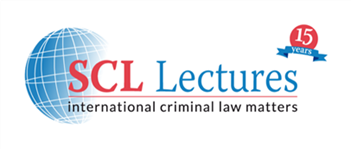Upcoming SCL lecture: Appeals on errors of fact – Assessing the reputational consequences of the ICTY Appeals Chamber’s interventionist approach
27 February 2019- Starts at: 19:00h
- Fee: free
- Venue: T.M.C. Asser Instituut
- Organiser: T.M.C. Asser Instituut
-
Address:
R.J. Schimmelpennincklaan 20-22
2517 JN The Hague
Netherlands - Register
Lecture
From 2006-2013, Rupert Elderkin worked for the Office of the Prosecutor at the International Criminal Tribunal for the Former Yugoslavia (ICTY). He was a member of a trial team prosecuting senior military and police officers for acts of genocide, crimes against humanity, and war crimes committed during the 1992-1995 Bosnian War.
In this new SCL lecture, Mr. Elderkin will discuss his recent ICD Brief on appeals on errors of fact and the Appeals Chamber’s interventionist approach. His brief highlights the ICTY Appeals Chamber’s limited deference to the Trial Chambers’ factual findings. In consequence of the standard of review that was applied, the Appeals Chamber regularly found fault with trial judges and unnecessarily raised doubts about the judicial professionalism of the institution.
Background
The International Criminal Tribunal for the former Yugoslavia (ICTY) was a United Nations court of law that dealt with the international crimes that took place during the conflicts in the Balkans in the 1990s. The Tribunal operated three Trial Chambers and one Appeals Chamber, which consisted of seven permanent Judges. During the ICTY’s mandate, which lasted from 1993 - 2017, it irreversibly changed the landscape of international humanitarian law, provided victims an opportunity to voice the horrors they witnessed and experienced, and proved that those suspected of bearing the greatest responsibility for atrocities committed during armed conflicts can be called to account. The ICTY had jurisdiction over four clusters of crimes committed on the territory of the former Yugoslavia since 1991: grave breaches of the Geneva Conventions, violations of the laws or customs of war, genocide, and crimes against humanity. A total of 161 persons were indicted.
Appeals on errors of fact
Trial judgements of the ICTY could be appealed both on matters of law and on matters of fact. As a consequence of the scope, the scale, and the complexity of the cases tried before the ICTY, almost all judgements were appealed by either or both parties. These appeals produced a large body of jurisprudence that propelled the development of the new discipline of international criminal law.
Mr. Elderkin’s paper focuses on the less-studied matter of how the Appeals Chamber dealt with appeals on points of fact, which will be important to the reputational legacy of the ICTY.
Supranational Criminal Law (SCL) Lectures
The Supranational Criminal Law (SCL) Lectures Series is a lecture series on international criminal law, organised by the T.M.C. Asser Instituut, the Grotius Centre for International Legal Studies of Leiden University (Campus The Hague), and the Coalition for the International Criminal Court.
The SCL lectures contribute to information-sharing and public discourse on contemporary legal issues, while benefiting from the input of distinguished practitioners and experts in the field. The lectures are meant for professionals, lawyers, journalists, diplomats, NGO representatives, students, and academics interested in international criminal law.
The lectures are public and free of charge. Please register for the event, as seats are available on a first-come-first-served basis.

If you would like to stay up to date on upcoming SCL Lectures please subscribe to the International Humanitarian & Criminal Law (IHCL) News Service.
Most SCL Lectures are recorded and can afterwards be viewed at www.internationalcrimesdatabase.org
